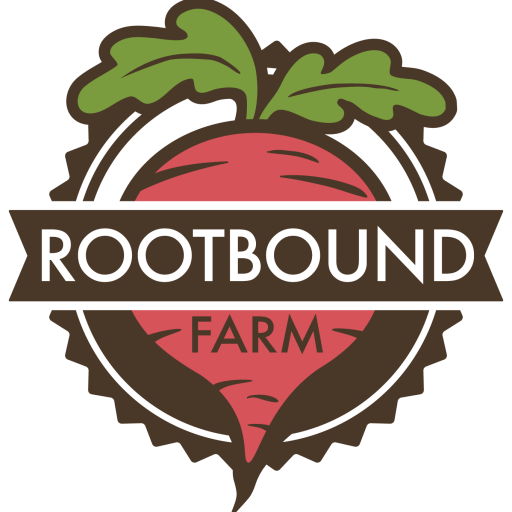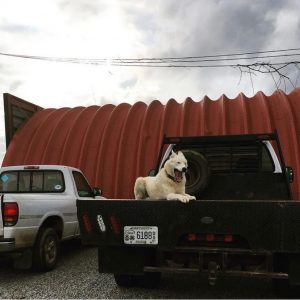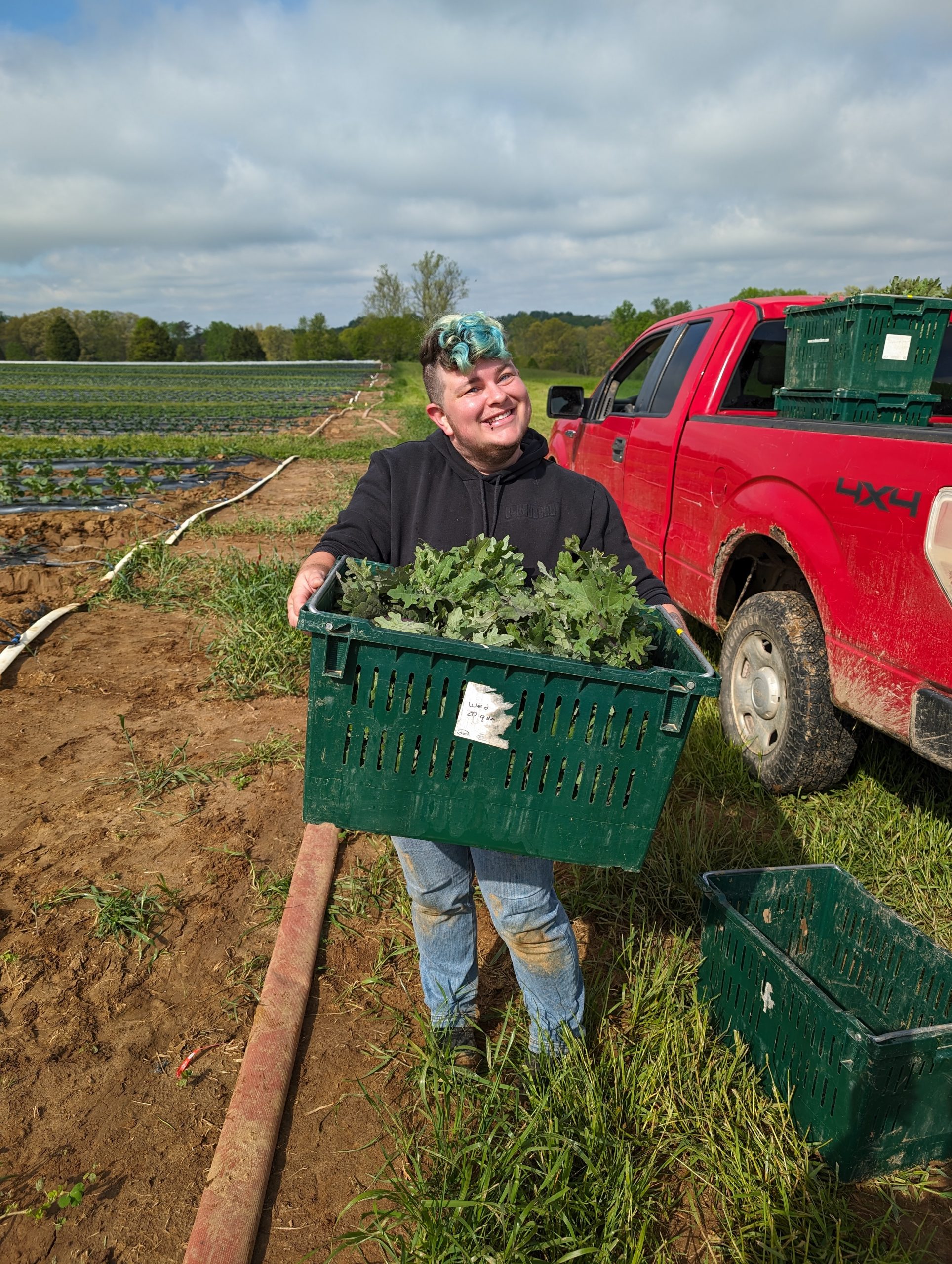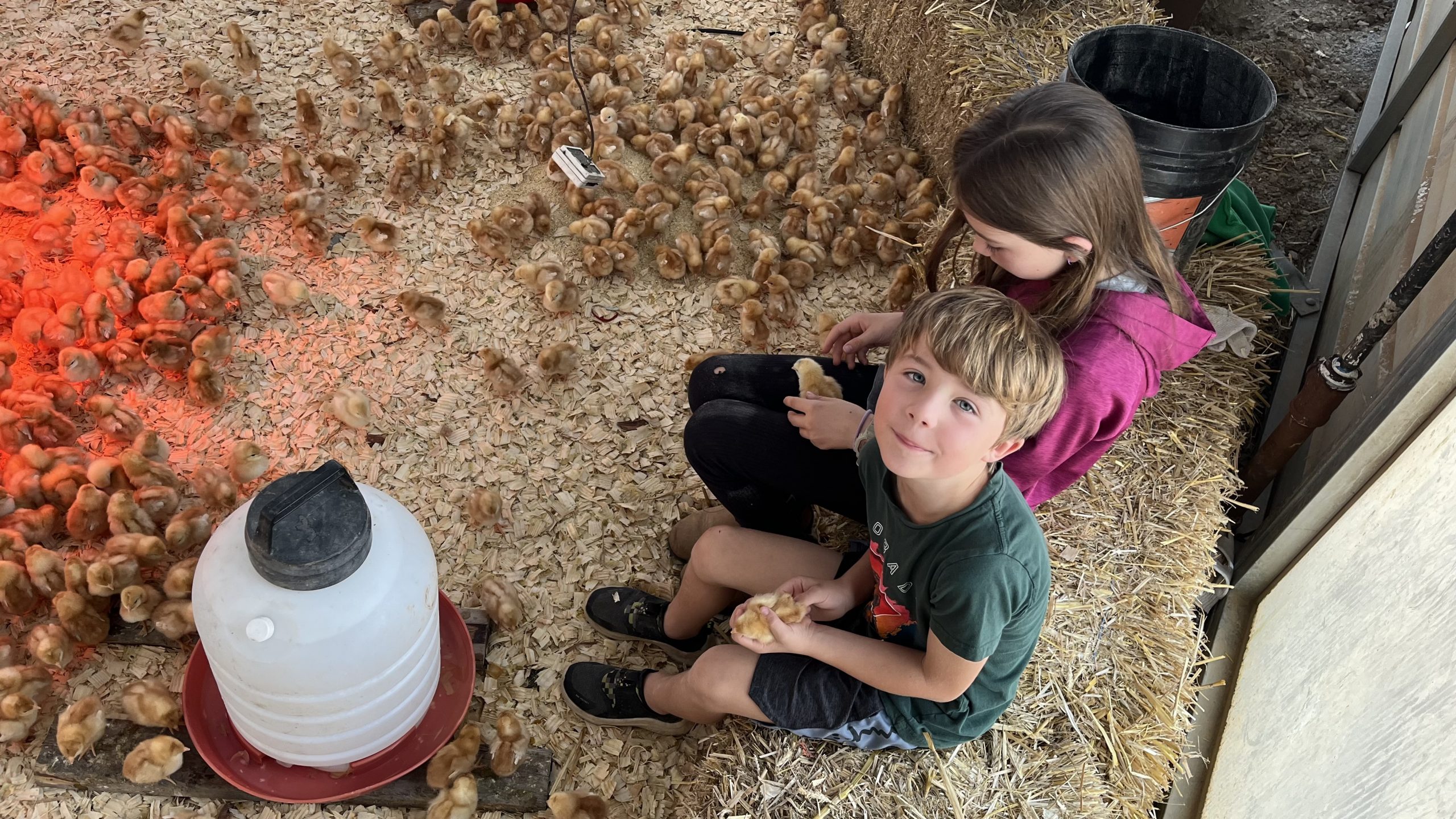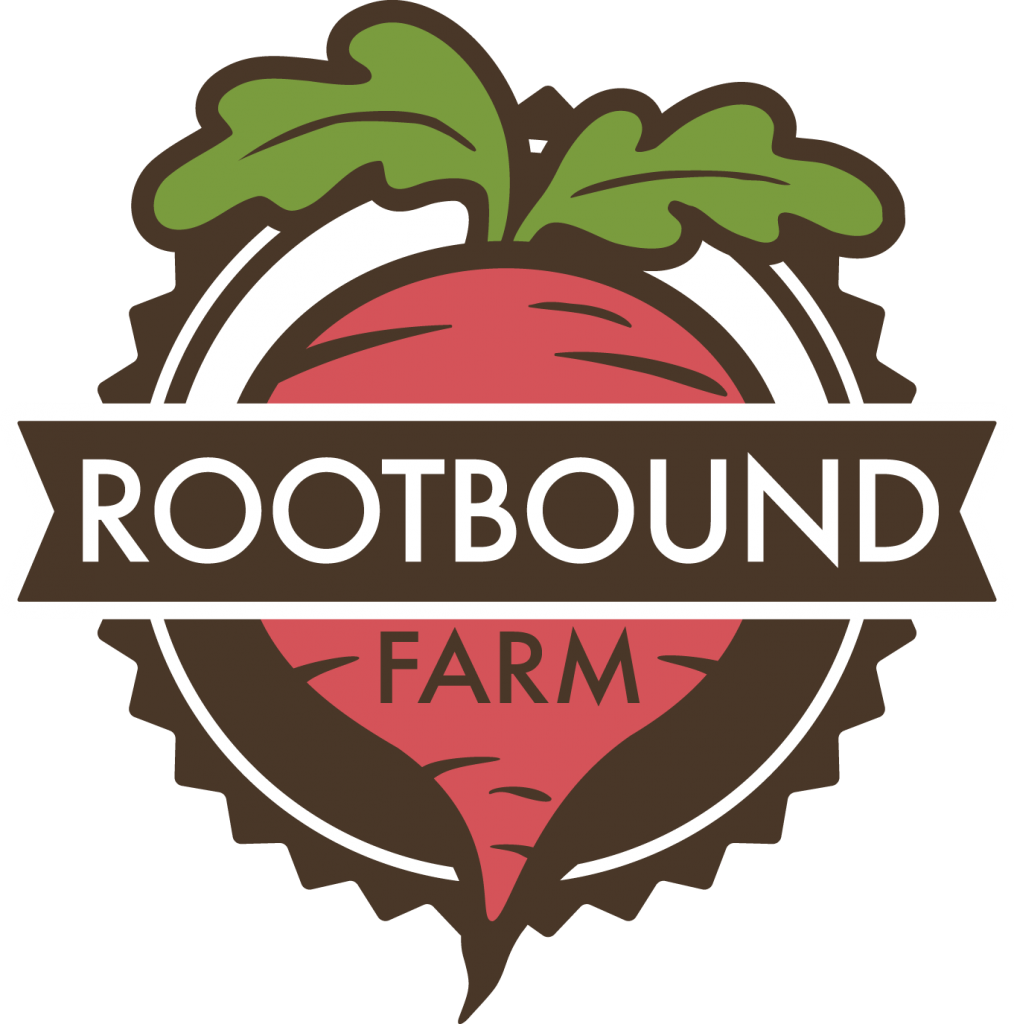We know you love dog updates, so here’s a deep dive on who’s on the farm! Here at Rootbound Farm we have 5 dogs, 4 of them are “working dogs” – meaning they have a job to do here on the farm.
There are two very distinct types of working dogs you’ll see with livestock. The “herding dogs” include border collies, Australian shepherds, etc. These are usually small dogs that use their intuition and obedience to humans to assist the shepherd in moving large groups of animals over large areas.
The other type of working dog is a Livestock Guardian. These dogs protect the flock by living with the flock, and being territorial against intruders that might do harm to the animals – including neighborhood dogs, coyotes, hawks and other birds of prey. These dogs do not “herd” at all – they maintain their presence and are usually larger dogs with intimidating barks and have a sturdy build. All of our working dogs are Livestock Guardians, we do not have any herding dogs.
Two of our dogs are 7 year old Great Pyrenees siblings, Gaia and Ghost. Ghost is now our resident chicken protector – living 24/7 with the chickens. When we started raising chickens 2 years ago, we knew we had to have a guardian with them because chickens are highly susceptible to almost every type of predator (hawks, raccoons, foxes, coyotes, you name it). Ghost was the only one of our dogs who seemed to vibe with the chickens. Everyone else wanted to eat them. But Ghost is Zen Master with the chickens and lets them clean his fur and is forever gentle.
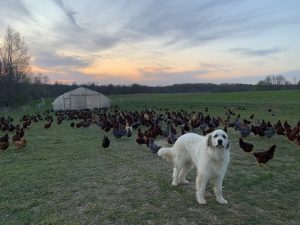
Gaia, named after “Mother Earth”, is a sheep guardian and is very serious about her job. She’s our most reliable protector, she stays with her flock and right now is guarding a group of about 150 moms and their 250 lambs. Our sheep rotate all over our farm and nearby farms (covering about 700 acres) so the dogs have to learn to travel with the flock and stay there when people are too far away to keep an eye on things.
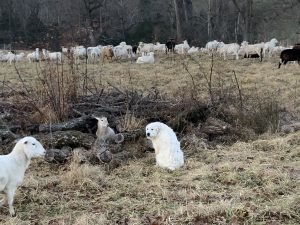
Our biggest predator pressure with the sheep is from coyotes. Every night we hear coyotes at our farm, and we’ve noticed some times of year when activity increases including breeding season and the deep winter when the adolescent males separate from their moms and become more bold and are seeking out new territory. We also have problems with black buzzards, which will kill very young lambs or even adult sheep that may be ill.
Livestock guardian dogs are “non lethal” type of predator control. The idea is not that they are out there fighting coyotes, the goal is that they deter coyotes and other predators by staking their territory and being intimidating enough that predators decide there is an easier meal to be found elsewhere.
Juno and Rosie are our Livestock Guardians – they are both “Turkish Kangal” breed. Rosie just turned 1 year old and Juno is 2 years old. We decided to try a different breed with these two new guardians for several reasons. The Pyrenees aren’t so well suited to hot KY summers with their big bodies and heavy coats. We work hard in the summer to keep them trimmed and comfortable, but the Kangals have a short coat and are leaner. We also wanted to try a dog that was more prone to chasing down a threat, and more responsive to threats. So far the Kangals are more amped up, and a bit more intense about their protecting job. But they seem a little less intuitive about how to manage their bodies around small and vulnerable animals. I trust Gaia and Ghost to sit right next to a mom in birth and be calm throughout the whole process. They are 100% trustworthy with all the birthing fluids and tiny baby lambs jumping around. Juno is a good boy but is too playful and a little too rough for the little lambs and he gets bored inside the paddock. He prefers to be running around the farm (and sometimes chasing cars of visitors -sorry!) and we hear him running allover the place barking throughout the night.
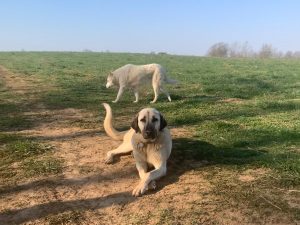
I’m learning that guardian dogs do their job in different ways that fit their personalities and their instincts. Some stick very close to the livestock (like Gaia) but aren’t prone to chasing down predators. Others aren’t always in the right place (like Juno) but run a very large territory.
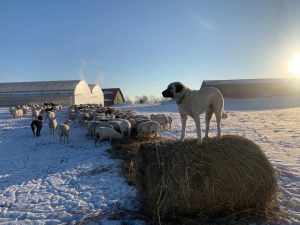
And of course there’s Luna, our 12 year old Husky mix. Luna doesn’t have any job here on the farm other than to get belly rubs, greet the Fedex truck, and greet visitors.
Last but not least, recipe ideas for the week:
- Pico de Gallo, homemade salsa – make sure to add cilantro and bell peppers and onions and chicken breast or lamb kabob for a great fajita night.
- Grilled Corn and Avocado Salad with Feta Dressing
- Roasted Cherry Tomatoes
- Sautéed Green Beans with Garlic
